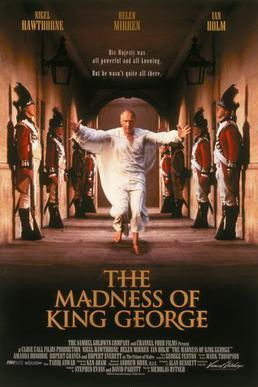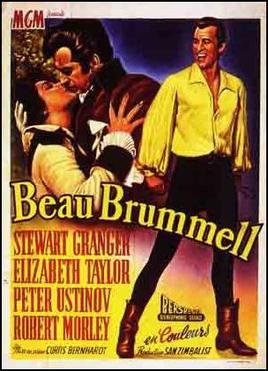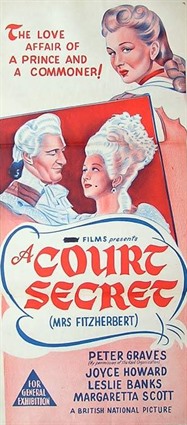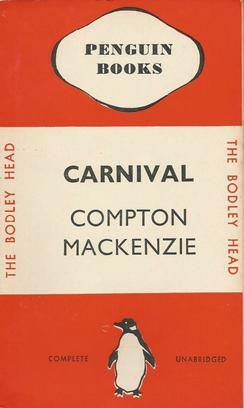Related Research Articles

The Madness of King George is a 1994 British biographical comedy drama film directed by Nicholas Hytner and adapted by Alan Bennett from his own 1991 play The Madness of George III. It tells the true story of George III of Great Britain's deteriorating mental health, and his equally declining relationship with his eldest son, the Prince of Wales, particularly focusing on the period around the Regency Crisis of 1788–89. Two text panels at the end of the film note that the colour of the King's urine suggests that he was suffering from porphyria, adding that the disease is "periodic, unpredictable and hereditary."

Maria Anne Fitzherbert was a longtime companion of George, Prince of Wales. In 1785, they secretly contracted a marriage that was invalid under English civil law because his father, King George III, had not consented to it. Fitzherbert was a Catholic and the law at the time forbade Catholics or spouses of Catholics from becoming monarch, so had the marriage been approved and valid, the Prince of Wales would have lost his place in the line of succession. Before marrying George, Fitzherbert had been twice widowed. Her nephew from her first marriage, Cardinal Weld, persuaded Pope Pius VII to declare the marriage sacramentally valid.

Beau Brummell is a 1954 British historical film released by Metro-Goldwyn-Mayer. It was directed by Curtis Bernhardt and produced by Sam Zimbalist from a screenplay by Karl Tunberg, based on the 1890 play Beau Brummell by Clyde Fitch. The play was previously adapted as a silent film made in 1924 and starring John Barrymore as Beau Brummell, Mary Astor, and Willard Louis as the Prince of Wales.

Mrs. Fitzherbert, also known as Princess Fitz and A Court Secret, is a 1947 black and white British historical drama film directed by Montgomery Tully and starring Peter Graves, Joyce Howard and Leslie Banks. It depicts the relationship between George IV and Maria Fitzherbert. It is an adaptation of the 1945 novel Princess Fitz by Winifred Carter

Prince Regent is a British period television series made and transmitted by the BBC in 1979. It depicts the life of George IV from his youth time as prince regent and his reign as King. It consists of eight episodes of 50 minutes.
The Woman Tempted is a 1926 British silent drama film directed by Maurice Elvey and starring Juliette Compton, Warwick Ward and Nina Vanna. It was based on a novel by Vera, Countess Cathcart. The film was shot at Cricklewood Studios, and was backed by John Maxwell's Wardour Films which was dramatically increasing its role in the film industry. It was first given a trade show screening in June 1926, but did not go on full release until the following March. By that time Elvey had departed to work for Maxwell's rival Gaumont-British.
Road House is a 1934 British comedy crime film directed by Maurice Elvey and starring Violet Loraine, Gordon Harker and Aileen Marson.
Red Pearls is a 1930 British silent crime film directed by Walter Forde and starring Lillian Rich, Frank Perfitt and Arthur Pusey. It was made at the Nettlefold Studios in Walton. It was based on the novel Nearer! Nearer! by J. Randolph James. The film was produced just as the change to sound films was taking place in Britain.
The Old Man is a 1931 British mystery film directed by Manning Haynes and starring Maisie Gay, Anne Grey and Lester Matthews. It is based on the play of the same name by Edgar Wallace, with several actors reprising their roles. The film marked the screen debut of Scottish actor Finlay Currie.
Wanda Rotha (1901–1982) was an Austrian stage actress. She also appeared in some films and television series.
Melody of Death is a 1922 British silent crime film directed by Floyd Martin Thornton and starring Philip Anthony, Enid R. Reed and Dick Sutherd. It is an adaptation of the 1915 novel The Melody of Death by Edgar Wallace.
Down Under Donovan is a 1922 British silent crime film directed by Harry Lambart and starring Cora Goffin, W.H. Benham and Bertram Parnell. It is based on the 1918 novel of the same title by Edgar Wallace.
Crazy People is a 1934 British comedy film directed by Leslie S. Hiscott and starring Henry Kendall, Nancy O'Neil and Kenneth Kove. It was made at Beaconsfield Studios as a quota quickie. It was based on the novel Safety First by Margot Neville.

George and Margaret is a 1940 British comedy film directed by George King and starring Marie Lohr, Judy Kelly and Noel Howlett. It is based on the Gerald Savory's 1937 play of the same name by Gerald Savory, which had run for over three hundred performances in the West End. The film was made at Teddington Studios by the British subsidiary of Warner Brothers. The sets were designed by the art director Norman G. Arnold. Unlike a number of the company's films from the era, which are now considered lost, this still survives.
Derelicts is a 1917 British silent drama film directed by Sidney Morgan and starring Violet Graham, Sydney Vautier and Julian Royce.
A Bid for Fortune is a 1917 British silent crime film directed by Sidney Morgan and starring A. Harding Steerman, Violet Graham and Sydney Vautier. It is based on Guy Boothby's novel of the same name
The Prisoner of Zenda is a 1915 British silent adventure film directed by George Loane Tucker and starring Henry Ainley, Jane Gail and Gerald Ames. Shot at Twickenham Studios, it is an adaptation of 1894 novel The Prisoner of Zenda by Anthony Hope. A film based on the 1898 sequel Rupert of Hentzau was released shortly afterwards with the same director and cast.

Carnival is a 1912 novel by the British writer Compton Mackenzie. A London ballet dancer falls in love with an aristocrat, but refuses to become his mistress and instead marries a Cornish farmer with ultimately tragic consequences. It was a commercial and critical success on its release.
A Lost Leader is a 1922 British silent drama film directed by George Ridgwell and starring Robert English, Dorothy Fane, and George Bellamy. It is based on the 1906 novel of the same title by E. Phillips Oppenheim.

The Scorpio Letters is a 1967 American-British thriller film directed by Richard Thorpe and starring Alex Cord, Shirley Eaton and Laurence Naismith. It was produced by MGM Television and shot mainly at MGM studios in Hollywood. It was broadcast by ABC in the United States while being given a theatrical release in several countries including Britain. It was the last film directed by Thorpe in a lengthy and prolific career. It is based on the 1964 novel of the same title by Victor Canning.
References
- ↑ Goble p.877